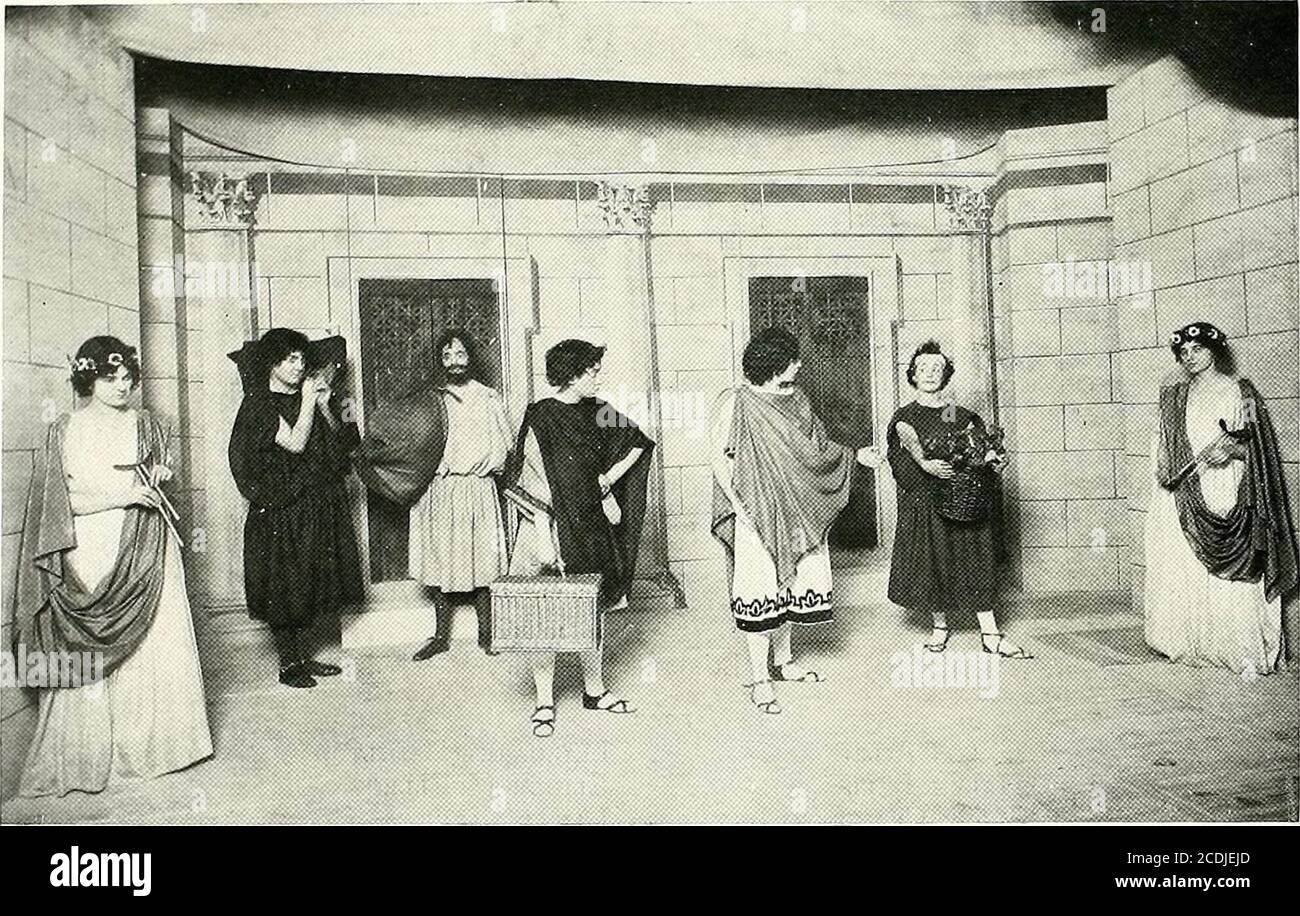

254 Sarsina Décès 184 … Wikipédia en Françaisĭouglass Parker - Douglass Stott Parker, Sr. Plaute - Nom de naissance Titus Maccius Plautus en latin Activités Écrivain Dramaturge Naissance c. Inhaltsverzeichnis 1 Leben 2 Sonstiges 3 Werke 4 Literatur 5 … Deutsch Wikipedia Chr.) war einer der ersten und produktivsten Komödiendichter im alten Rom. Poster for a 1879 production on Broadway, featuring Stuart Robson and William Crane The Comedy of Errors is one of William Shakespeare s earliest… … Wikipedia For other uses, see Comedy of errors (disambiguation). The Comedy of Errors - This article is about Shakespeare s play. 254 BC Sarsina, Umbria Died 184 BC Rome … Wikipedia Plautus - For the Roman noble, see Rubellius Plautus. MENAECHMI - nomen comoediae Plautinae … Hofmann J. Inhalt Die Verwechslungskomödie, die auf Vorlagen der Neueren attischen Komödie beruht, setzt in… … Deutsch Wikipedia Der deutsche Name für dieses Stück ist Die beiden Zwillinge. Menaechmi - ist eine lateinische Komödie von Plautus. Contenido 1 Origen 2 Trascendencia 3 Personajes … Wikipedia Español Menaechmi - Menaechmi, también llamada en español Los Gemelos o Los Menecmos, es una comedia escrita por el autor de la Roma clásica Plauto entre el 216 y el 186 a. C.

^ Olive Classe, editor, Encyclopedia of Literary Translation, 2000, p.Howe, Classics in Translation, Volume II,1959, " " May 11, 2011 Menaechmi at The Latin Library (full latin text).Henry Thomas Riley, 1912: Menaechmi (full text).Shakespeare's Twelfth Night also features mistaken twins, the sister dressed as a boy. A similar line of influence was Carlo Goldoni's 1747 play I due gemelli veneziani (" The two Venetian twins") (also adapted as The Venetian Twins in 1979). This play was the major source for William Shakespeare's The Comedy of Errors, which was subsequently adapted for the musical theatre by Rodgers and Hart in The Boys from Syracuse. Messenio is then granted freedom for his aid. Because of their identical looks and names, the two Menaechmi are often mistaken for each other, causing Sosicles to view the people of Epidamnus as rude and peculiar and getting Menaechmus into trouble with his wife and friends.Īt the end of the play, Menaechmus and Sosicles finally meet and realize that they are twins, with much help from Sosicles's slave Messenio. Eventually, Sosicles is ready to give up hope and return home however, prior to returning, he decides to make one last stop at Epidamnus. Sosicles, who has been renamed Menaechmus by his grandfather in memory of his long-lost brother, spends many years traveling in search for Menaechmus. During the trip, Menaechmus is abducted and adopted by a businessman who lives in Epidamnus, separating the twins. Moschus decides to take only one of the twins, Menaechmus, with him on a business trip, while the twins are still young. Moschus has twin sons, Menaechmus and Sosicles.


 0 kommentar(er)
0 kommentar(er)
